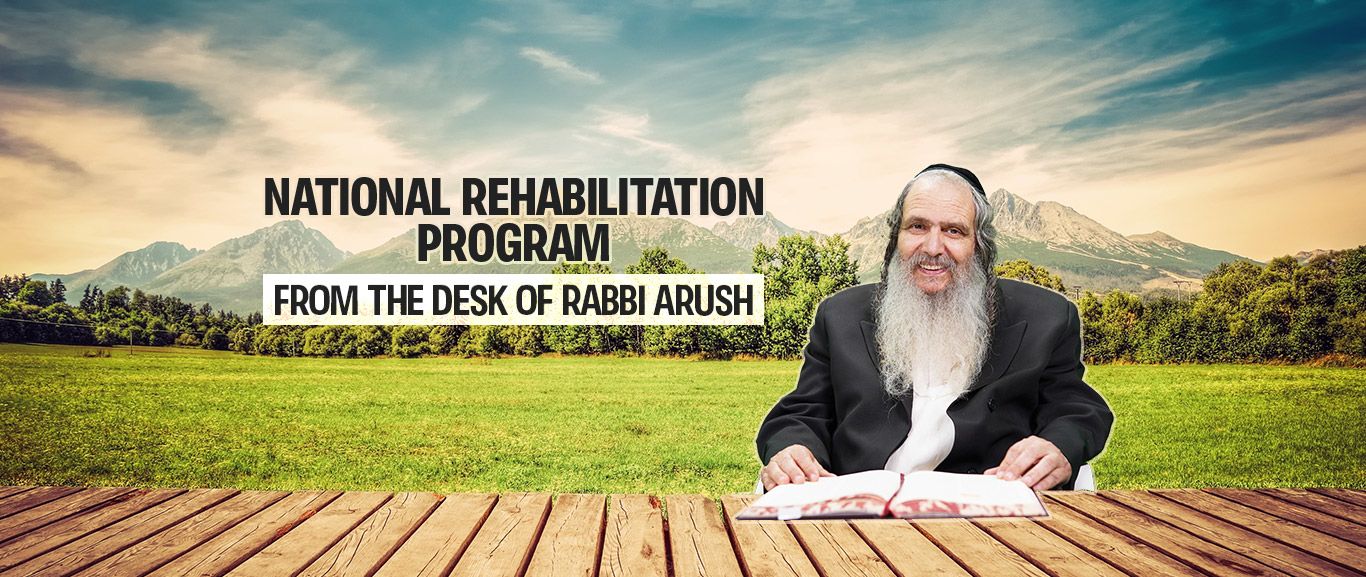
National Rehabilitation Program
In Hashem’s wonderful love for us, He gives us the gift of teshuva to return to Him. By stirring our hearts to repentance, and even more so when we bring other Jews to Hashem, we win over His mercy for all the people of Israel.

Translated from Rabbi Arush’s feature article in the weekly Chut shel Chessed newsletter. The articles focus on his main message: “Loving others as yourself” and emuna.
Best Attorney
Teshuva is a big innovation. The rule of the thumb says, yikov hadin et hahar – the strict and narrow law should prevail. This is the law, and one may not swerve from it. The strict law determines the level of penalties and there is no room for leniency.
But the Creator of the World created for us the idea that teshuva is above all the rules and laws. When a Jew does teshuva and reveals his desire to change, then the din (strict law) gives way before the teshuva.
Thousands of years after the Torah was given, modern law began to recognize teshuva as a legal consideration. After it has been decided that the defendant is indeed guilty, the judge goes on to determine the punishment according to the criteria listed by the law, and every criminal lawyer knows that one of the central considerations for making the punishment as light as possible is the defendant’s willingness to enter a rehabilitation program!
Moshe Rabbeinu was the best advocate. He represented the Jewish people successfully in front of He who knows everything and Whose seal is truth. In this court one cannot fool anybody; pure truth reigns there. Therefore, Moshe Rabbeinu’s claims had to be completely true.
Moshe Rabbeinu didn’t just ask for forgiveness and a clean slate. That wouldn’t have worked. Because the sin revealed people’s tendency to rebel – a very strong and attractive yetzer hara that reawakens repeatedly, and therefore the person will sin repeatedly. So, Moshe Rabbeinu suggested an in-depth rehabilitation program for the Jewish people. Let’s solve the problem from its roots.
And that, actually, is the Mishkan…
Festive Announcement
The final verdict regarding chet ha’egel (Sin of the Golden Calf) was handed down on Yom Kippur. And the very next morning, according to Chazal and Rashi on the passuk “Moshe assembled all the community of Yisrael” (Shemot 35:1), Moshe called all Bnei Yisrael to a national assembly in which everyone had to participate.
Obviously, Moshe Rabbeinu was about to make a very important announcement. And, indeed, Moshe surprised the nation and presented the plan: a national project of teshuva – the building of the Mishkan.
The tikkun (rectification) in erecting the Mishkan was twofold: The first, simple tikkun is the very fact of the volunteering. It was very exciting to see the Jewish people volunteer enthusiastically, bringing all that was needed for the Mishkan and erasing the great shame of their having donated gold to make the Golden Calf. Within two days – so it says in our parasha – the artisans announced that the people “are bringing more than is necessary”. (Shemot 36:4-7) There is already too much!
Deep Rectification
But the main tikkun goes way beyond that. The essence of the Mishkan is the essence of teshuva. The main daily service in the Mishkan is the offerings, all of which come to atone and to address the sinners’ needs – that is the true tikkun and rehabilitation.
Sinning is, unfortunately, part of life. We have a yetzer hara and we have freedom of choice, and the choice teeters on the very edge, which means we are bound to fall sometimes. Moshe Rabbeinu is creating for the Jewish people a rehabilitation plan that gives them a place, the Mishkan, where they can start afresh every time, see miracles, meet again with the reality of Hashem, renew their faith, renew the power of their prayer, do complete teshuva, confess and beg for forgiveness.
That is why Chazal say that the morning korban tamid atoned for all sins committed at night, and the afternoon one atoned for all sins committed during the day, and so the Jews always had a status of having been forgiven. And this is very puzzling: Do two little sheep atone for all the sins of all the Jews?
But no – surely it was not only those two sheep, but rather that the spiritual reality of the Mishkan created such a sublime and elating atmosphere of teshuva among the Jews, that even those who had fallen and sinned would immediately be awakened in teshuva and would return immediately to Hashem yitbarach.
Providing a Basis for the Claim
Today we have no Mishkan. And if there’s no Mishkan, there has to be an alternative rehabilitation program. Without such a program, the tzaddikim, who are our attorneys, have no claim to make when coming to ask Hashem to forgive the Jews and sweeten their din (verdict). So, what do we do today? What is the Jewish people’s rehabilitation program in our generation?
It is dissemination – to go out to the people and encourage them to do teshuva! As long as there are people who disseminate Judaism and the process of teshuva among the Jews is moving forward – then the tzaddikim have a strong claim in favor of Hashem yitbarach dismissing any punishment:
“Creator of the World, it is true that the Jewish People is not in the greatest shape in many areas, but the ‘defendant’ wishes with all his heart, mind, and soul to be rehabilitated.
“He must be given the opportunity to do so. And here’s our proof: We go out to the people, and we see results. The thirst is great. The dissemination leaves its mark. Give us time and strength and help from Above, and in the end the kedusha (holiness) will prevail…”
This was true before Simchat Torah as well, and it is doubly and triply so after Simchat Torah. We all see this tremendous fiery outburst: the profound thirst of our brothers and sisters. Recently, a survey was published showing that more than ninety percent of the Jews say that their faith has not been affected negatively, and more than a third say that it has even gotten stronger since that day of horror, and almost everyone feels that their Jewish identity and their connection to the Jewish People has intensified!
Dissemination is this generation’s Mishkan. And as Rabbi Nachman of Breslev says explicitly: “The person who does his best to bring people closer, builds something of a “heichal kodesh” (holy venue)!” Because the actions of the tzaddikim to awaken the soul of the Jewish people and bring them to do teshuva are the heichal hakodesh, in other words, the Mishkan. Because, practically speaking, the whole goal of the Mishkan is to bring Yisrael closer to their Father in Heaven!
He Will Grant You Mercy
So, we will call out again to all our brethren, all Jews, wherever they are, big and small:
Now is the time to get up and work for the Jewish People! We are forbidden to leave those hungry and thirsty souls without their needs having been addressed. Every person can contribute! Every person has what to give! Even if you think that you cannot go out personally, you can participate in funding kiruv activities. This is your gift to the building of the Mishkan is this generation, to this national project of rehabilitation of the Jewish People, which gives the tzaddikim the basis for their claim when they come to bring salvation and sweeten the dinim of the Jews!
And when you go out to the people, you are giving merits first and foremost to yourself! For Chazal say, “He who brings merit to the many, sin does not come by his hand.”
I saw a tremendously novel idea about this in the book Nachalat Hagershuni, written by a disciple of the Yitav Lev:
Chazal say that the world cannot be maintained on strict justice (middat hadin); and therefore, Hashem combines it with middat harachamim – mercy.
The actions of the tzaddikim to encourage people to do teshuva and to bring merits to the Jewish people is an action of maintaining the world. And therefore, it brings down to this world a huge amount of rachamim. And so, whoever does his best to bring others to do teshuva is a partner in bringing rachamim to the world, and naturally he is the first to benefit from these rachamim. And even if he deserves punishment, chalila, Hashem has mercy on him.
But if, chalila, he does not care about the tikkun of the world, he is leaving the world with only middat hadin, the result is that he gets no mercy at all; and since he doesn’t bring merit to the many – then certainly sin comes by his hand, says the Rav, and he will gets his just deserts for every sin of his, a complete and eternal din, and he will not be resurrected in techiyat hametim (resurrection of the dead), so that the measure of justice will be fully maintained!
These are very shocking ideas, that if they had not been said by a great luminary, we wouldn’t be able to utter them.
But we must shout out this truth: All of us must do our best to bring rectification to the world; all of us must take part in bringing merit to the Jewish People. This is not just “a nice addition” to our service of Hashem. It is not optional. Rather, it is a holy obligation on which all our lives and the lives of the Jewish people depend. So go for it!


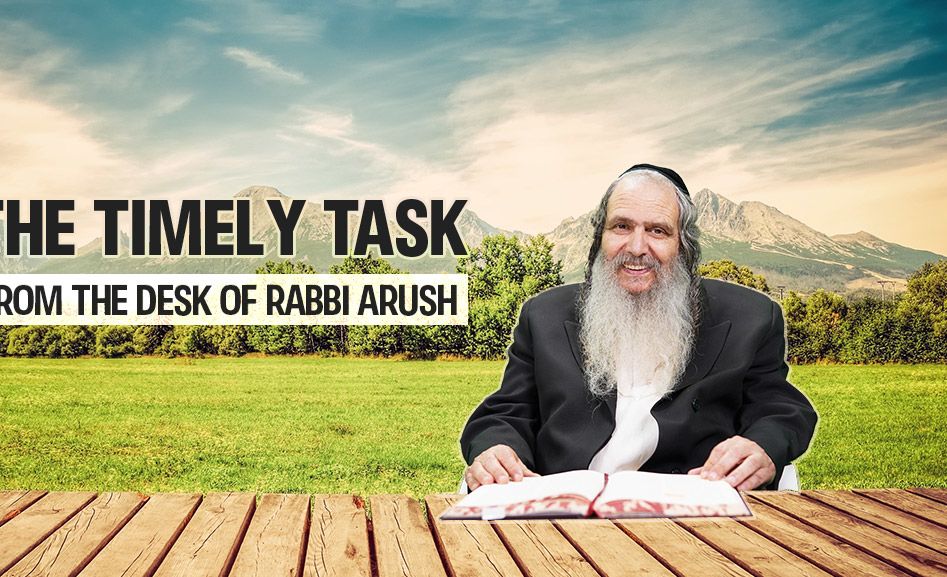


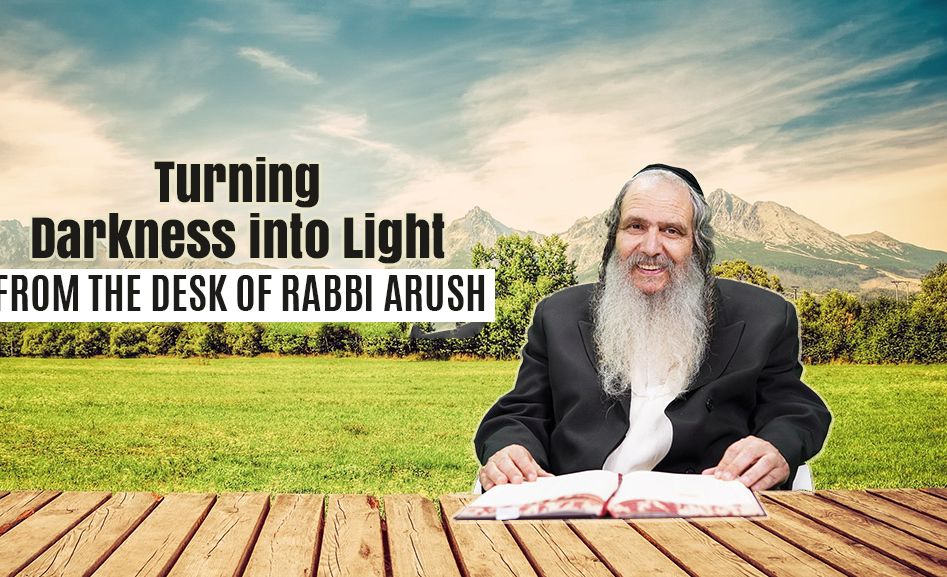

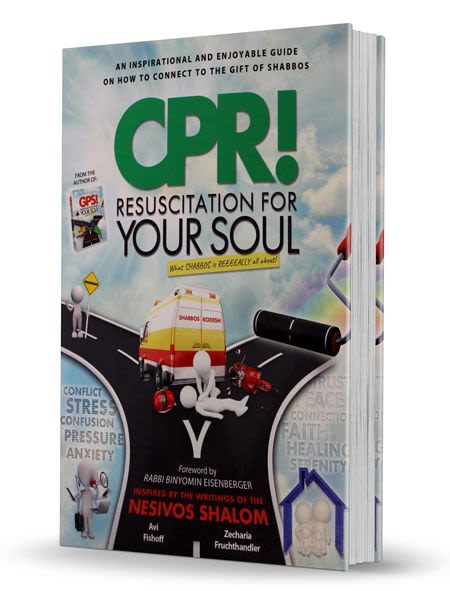

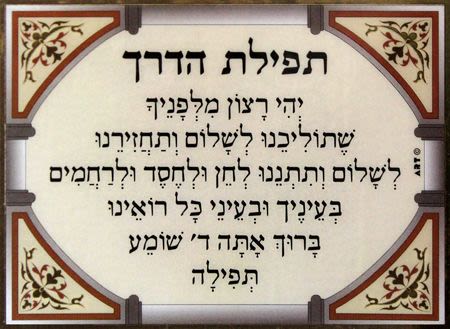
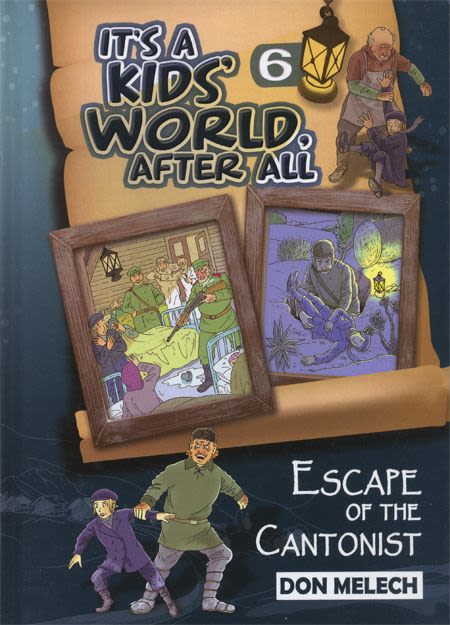
Tell us what you think!
Thank you for your comment!
It will be published after approval by the Editor.